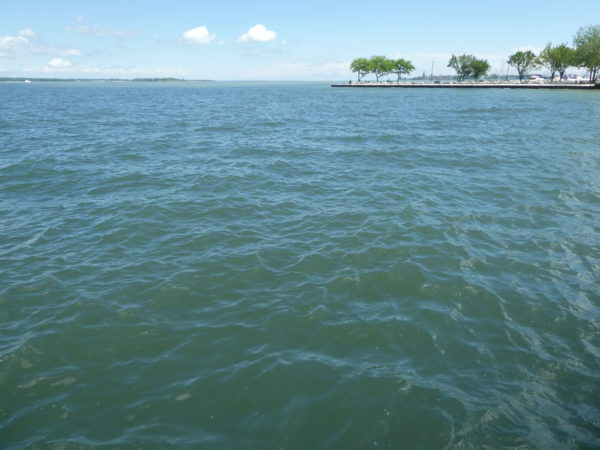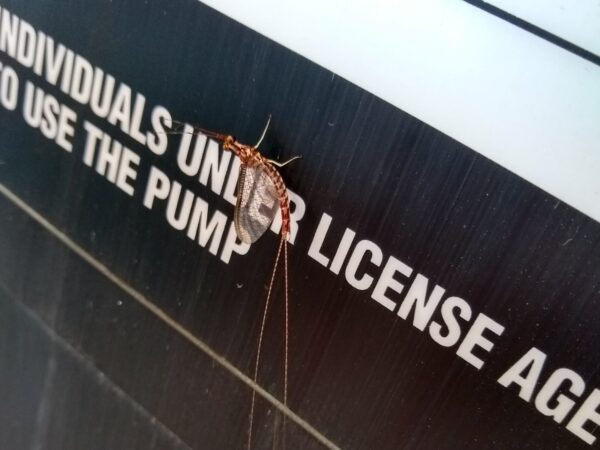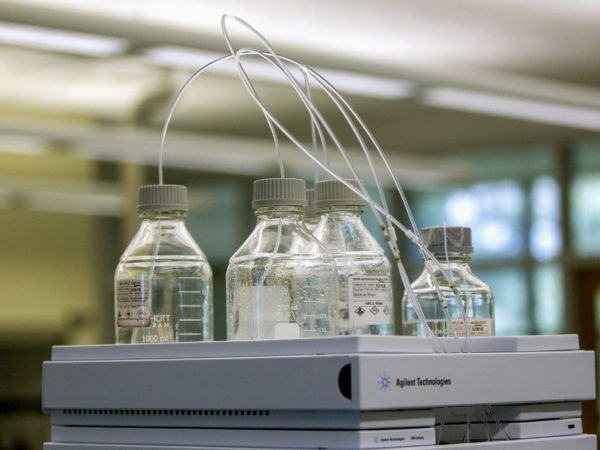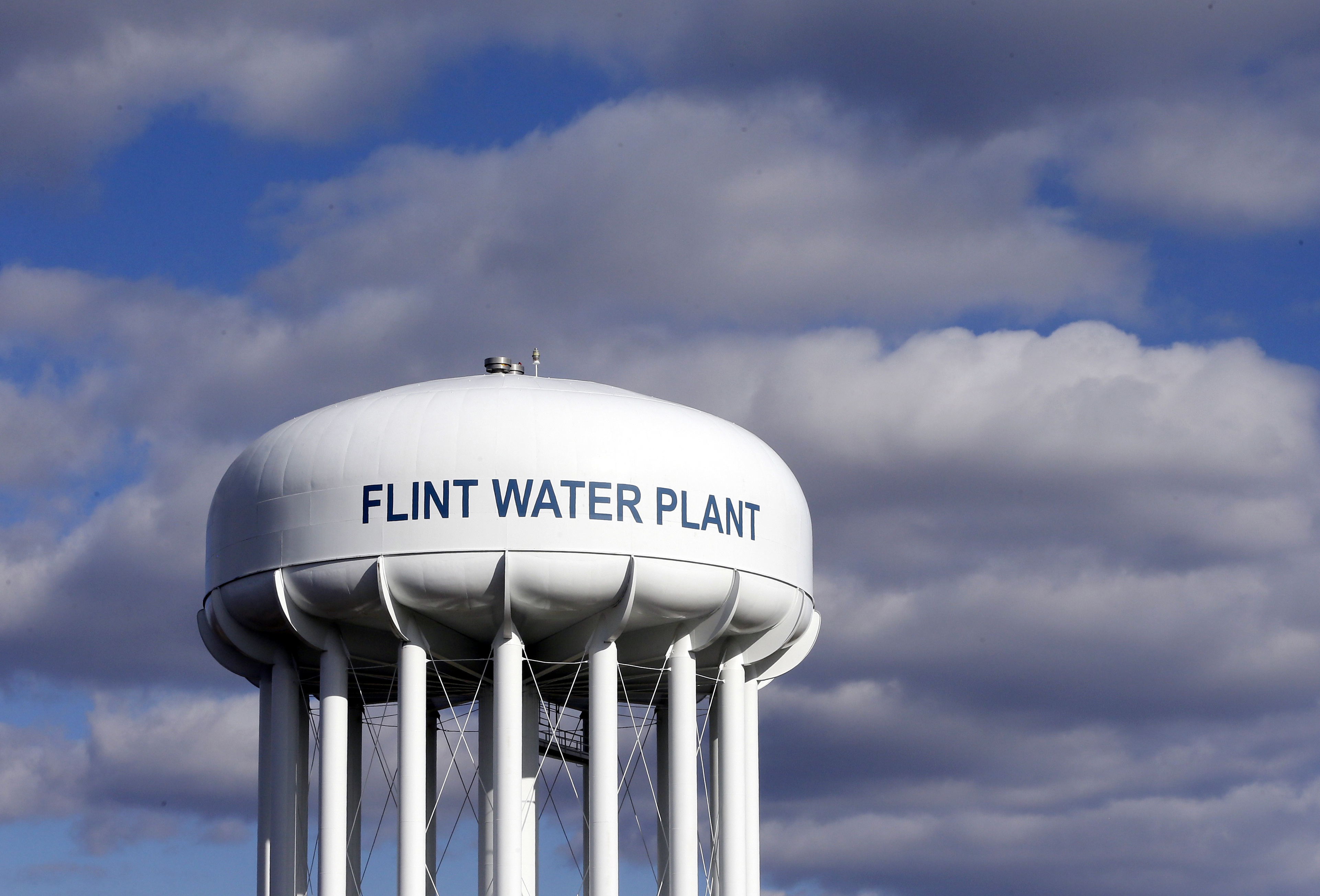
Detroit water rights advocate Monica Lewis-Patrick has a few questions for presidential candidates incumbent Donald Trump and former Vice President Joe Biden.
“What’s your water policy? What will you do to protect our drinking water,” Lewis-Patrick asked in a July Healing Our Waters Coalition press release that asked the candidates to support a Great Lakes water platform.
Lewis-Patrick, president of We the People of Detroit, said the Great Lakes region – including cities like Detroit, Milwaukee and Cleveland – is in the midst of a drinking water infrastructure crisis “that is putting our people, our families and our communities at risk.”
The region-wide coalition called for the candidates to support a three-fold increase in drinking water and wastewater infrastructure along with a funding increase for the popular Great Lakes Restoration Initiative.
The restoration program got its start under President George W. Bush and was funded in President Barack Obama’s first budget proposal in 2009. It has long enjoyed wide bi-partisan support.
In his first budget proposal in 2017 President Trump proposed elimination of funding for the program but was overridden by Congress. Trump reversed course in a 2019 campaign speech in Grand Rapids where he said he now supports full funding for restoration.
Local water infrastructure as a priority
The Great Lakes region’s aged water infrastructure wasn’t designed for resiliency, and that keeps Michigan’s Rob Sisson awake at night, Sisson said in an email.
A former Michigan municipal executive, Sisson was appointed in 2018 to the International Joint Commission. Commissioners advise the U.S. and Canadian government in Washington and Ottawa respectively on trans-border water issues.
Drinking water depends on local infrastructure, according to Sisson, who said that means it doesn’t usually rise to the top of the issues for federal candidates, but they should pay attention.
“Because this issue is most acute in urban centers of population – like Detroit, Milwaukee and Cleveland – the presidential candidates and candidates at all levels would be wise to make it a centerpiece of their platforms in our region,” Sisson told Great Lakes Now.
In the era of COVID-19 and economic and social challenges, environmental law professor David Uhlmann says voters will still want candidates to focus on drinking water quality.
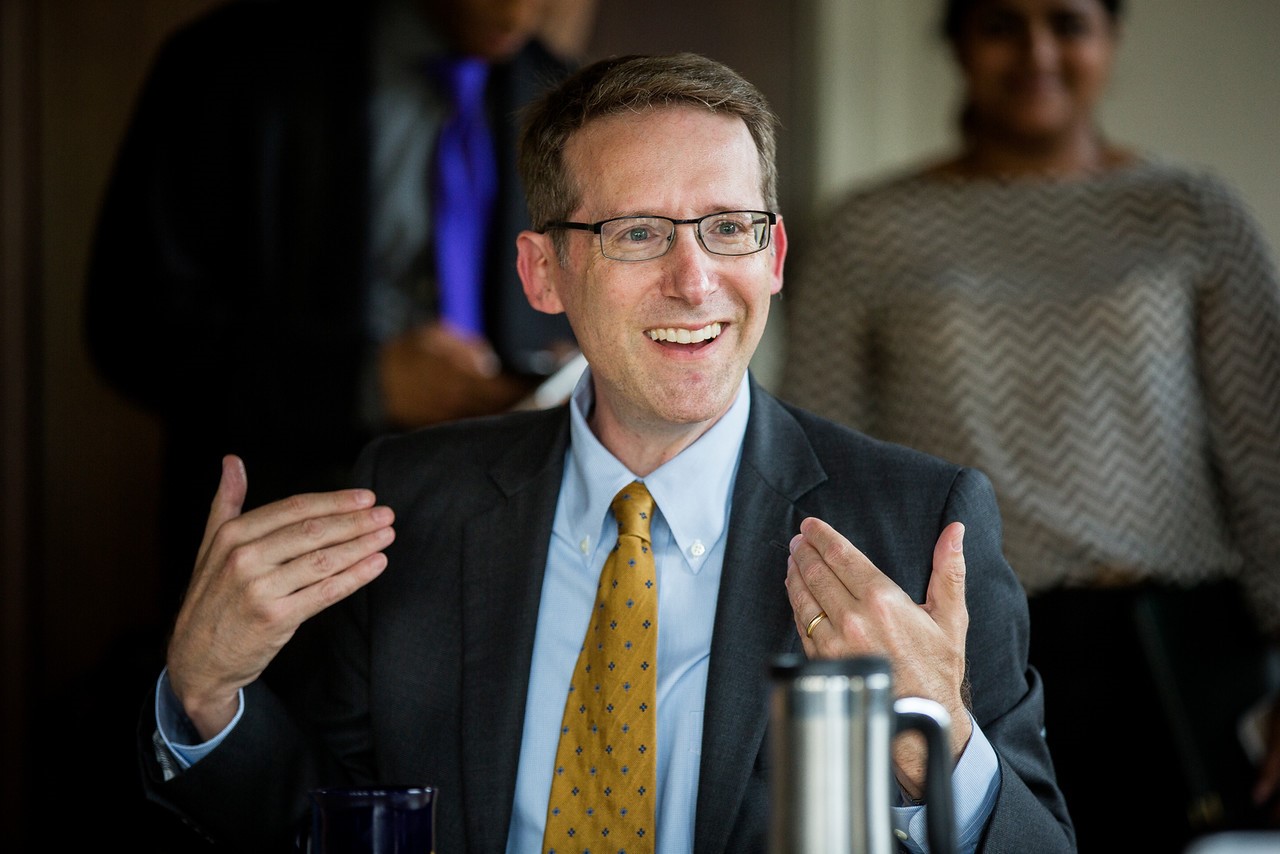
David Uhlmann directs the Environmental Law and Policy Program at the University of Michigan (Photo courtesy of David Uhlmann)
“The pandemic, the economy and systemic racism loom large in the presidential election, but for voters in Michigan and neighboring states, protecting the Great Lakes and providing safe drinking water will play a pivotal role as well,” said Uhlmann, who directs the Environmental Law and Policy Program at the University of Michigan.
Uhlmann argues that financial investments in drinking water systems are badly needed. He also said the Trump administration made changes to the Clean Water Act that weakened the landmark 1972 law and will be detrimental to the Great Lakes.
Governors want action on water infrastructure
Led by Michigan Gov. Gretchen Whitmer, five Great Lakes state governors developed a Great Lakes 2020 Presidential Agenda in 2019 and asked all presidential candidates to adopt the plan.
“Preserving our Great Lakes, protecting public health and cleaning up drinking water is a top priority for our region. The health of our families, our economy, and 51 million jobs depend on our immediate action,” Whitmer said.
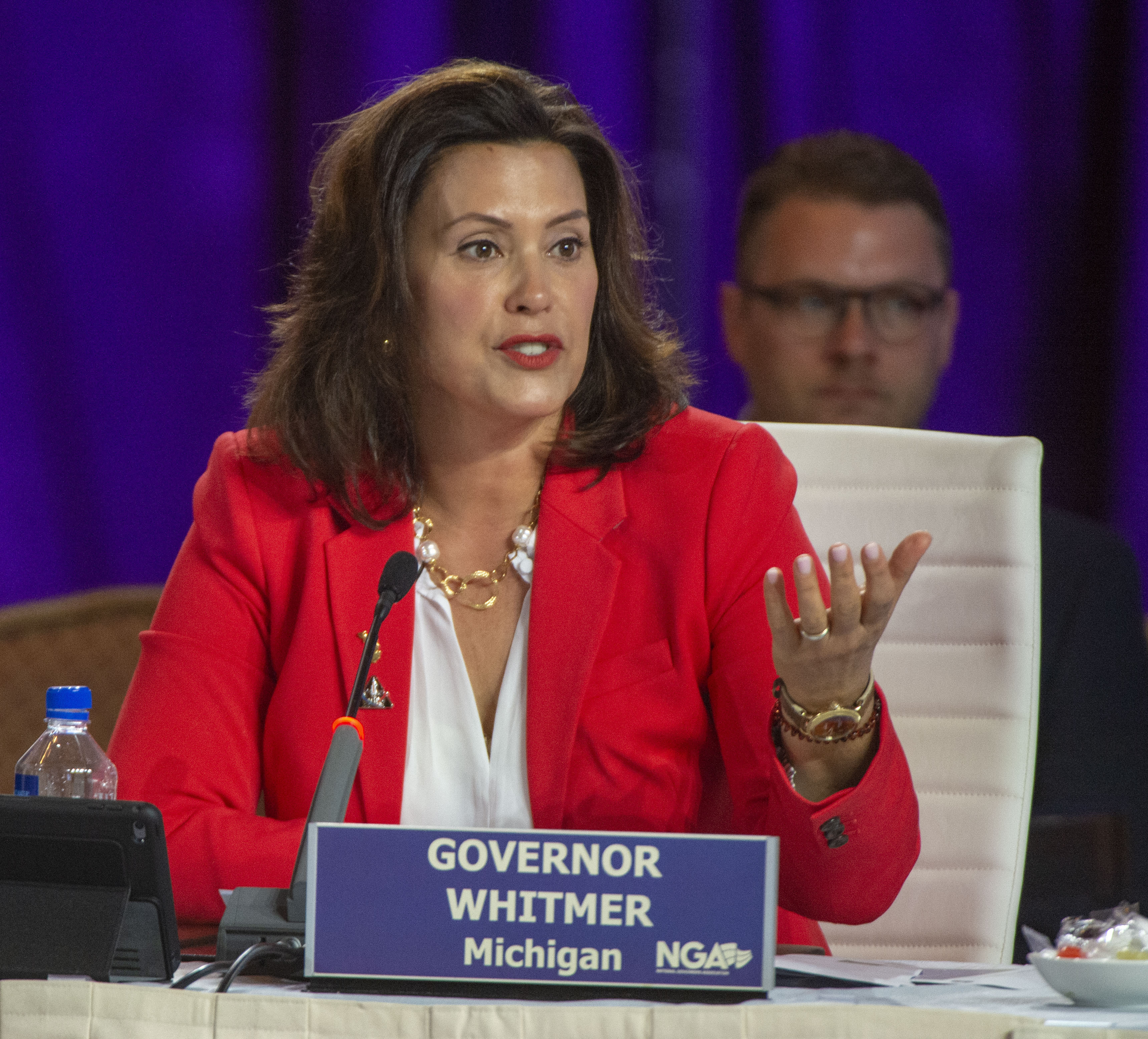
Michigan Gov. Gretchen Whitmer speaks during a session at the National Governor’s Association conference in Salt Lake City. (Rick Egan / The Salt Lake Tribune via AP)
The six-point plan led with a call for presidential candidates to “address our region’s $179 billion backlog in drinking water, wastewater, and stormwater infrastructure so all of our residents have access to clean, safe, and affordable drinking water.”
The plan also called for action and funding to stop Asian carp and increased assistance to combat nutrient pollution to Lake Erie.
The other four governors to sign on were from Illinois, Minnesota, Pennsylvania and Wisconsin. Whitmer, a Democrat, was on a short list of candidates to be Biden’s vice president. Biden selected U.S. Sen. Kamala Harris.
Presidential campaign websites
Campaign websites are usually a recounting of accomplishments if you’re the incumbent and proposals if the challenger. Trump and Biden’s are no different.
Under an Infrastructure tab the Trump campaign lists “achievements,” none of which directly refer to water projects. There is a forward-looking statement on making sure rural families have access to clean water and one on managing flood risk.
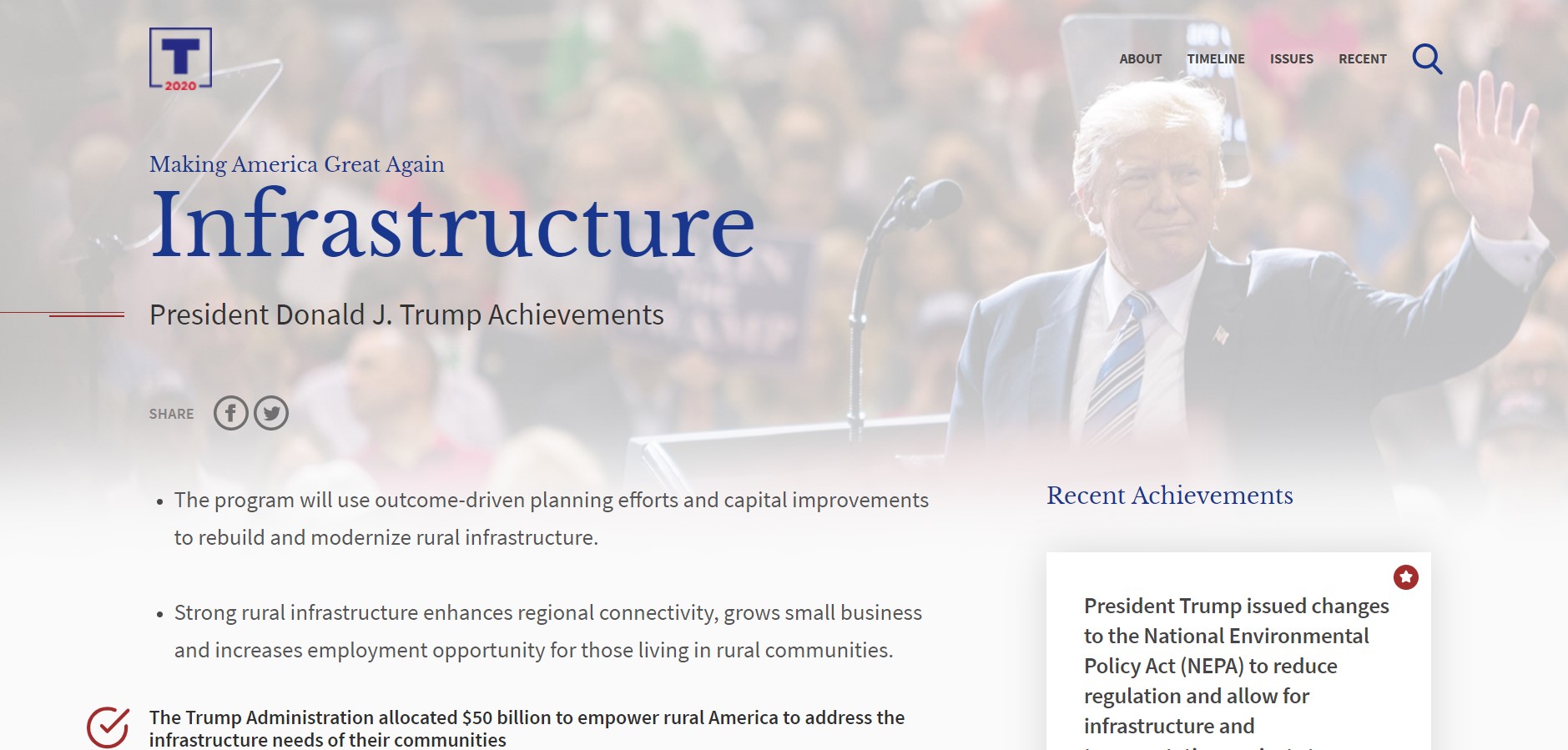
Under the Energy and Environment tab the Trump campaign lists a $3.7 million grant for Lake Erie as an achievement.
The Biden campaign website is heavy on re-engaging on climate change and renewable energy but does address water issues under the heading of Safe and Clean Water for All Americans.
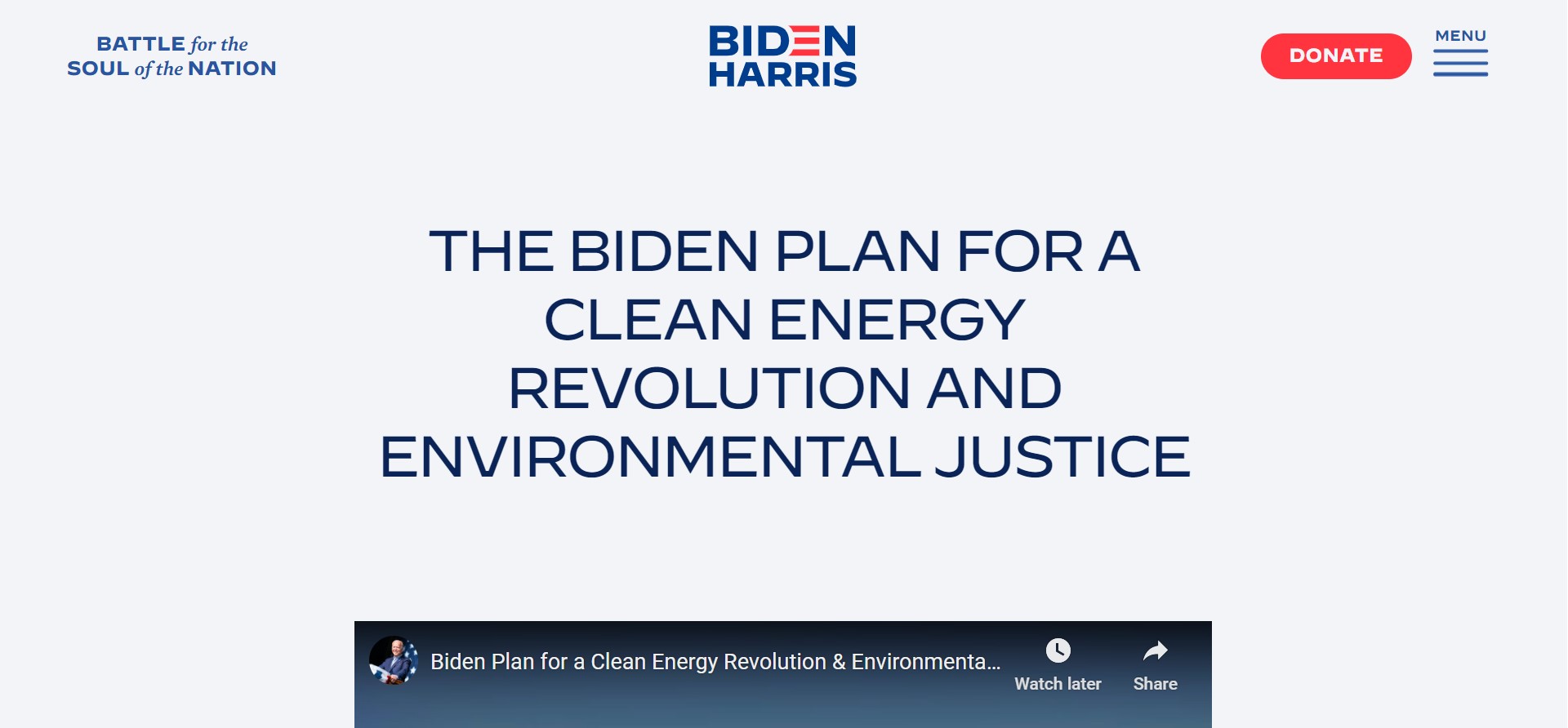
“We can all agree that threats to our water system are threats to our quality of life,” the site says, prioritizing access to clean drinking water and upgrading municipal infrastructure.
Specific to the Great Lakes, the Biden site says the “recent increase in flooding is directly related to the intensification of rainfall” which impacts the Great Lakes and exacerbates issues like PFAS contamination.
The Healing Our Waters Coalition recently put drinking water quality issues in the 2020 election spotlight in a letter to the New York Times.
Coalition director Laura Rubin wrote that there are communities surrounded by freshwater that lack safe drinking water in their homes due to toxic threats.
“It’s time for President Trump and former Vice President Joe Biden to explain what they will do to protect the Great Lakes, our drinking water, our public health and our communities,” Rubin said.
Read more stories on the 2020 presidential election candidates on Great Lakes Now:
What are Joe Biden’s views on two of the most controversial environmental projects in Minnesota?
Trump Cabinet members look to reassure battleground voters
Trump administration finalizes coal plant pollution rollback
Featured image: In this March 21, 2016, file photo, the Flint Water Plant water tower is seen in Flint, Mich. (AP Photo/Carlos Osorio, File)
1 Comment
-
As usual, Biden has NO PLAN!! Just words to give voters a false sense of security.. When Trump planned to cut $300 million for Great Lakes Conservation< I could NOT FIND one program aimed at actually cleaning up any aspect of pollution in any of the Great lakes.. ALL I COULD find was funding for a myriad of college and university research projects…. I have sailed and raced on Lake Michigan and Lake Huron since 1973 and likely have over 21,000 miles of "on the water" activity…. the invasion of species like the Zebra Miussel and Quagas are NOT GOOD for this ecosystem…. The federal government is NOT, in my opinion, responsible for ageing water systems in cities like Flint and Detroit that no longer has the ability to fund water system improvement…


